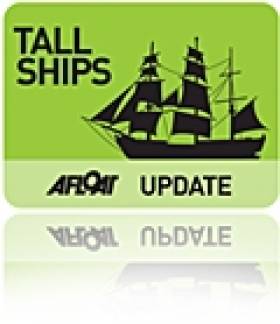Displaying items by tag: CEO
Job Vacancy At ISAF – Chief Executive Officer
#isaf – The International Sailing Federation (ISAF) is seeking a Chief Executive Officer.
Working closely with the President, Executive Committee and Council, the CEO will provide strategic leadership to ISAF and its staff and ensure the provision of a timely, first class service to the ISAF membership to ensure the needs of its members are treated as paramount.
This is an exciting time to join the world governing body for the sport of sailing, as 2015 sees the launch of our ISAF Sailing World Cup Series, with events in Australia, USA, France, UK and China, culminating in the Final in Abu Dhabi.
More information about the job and the application process can be found here
Applicants are asked to provide a covering letter highlighting their motivation for the role, relevant experience and details of current remuneration. Additionally, please submit a curriculum vitae (CV) showing a full and continuous employment history and formal education qualifications.
All applications should be sent to [email protected] by Monday 23 February, 2015.
Dublin to Welcome Tall Ships into the Bay in August 2012
For the first time since 1998, Dublin City will welcome back sailing's International Tall Ships Races, presented by Szczecin, Poland. As final host port for the 2012 Tall Ship Races, the event will see up to 100 Tall Ships sail into Dublin for a four day Festival and celebration, from Thursday the 23rd August to Sunday 26th August, 2012. Ships from as far away as Chile, Mexico, Argentina, USA and European and Baltic countries including Italy and Norway will chart their course to Dublin.
Over 5000 participants will compete in these "experience of a lifetime" races and there will be opportunities for young trainees from Dublin to be selected to participate in the races. The event offers young people a unique setting for developing essential life skills like team building, leadership, multi-cultural understanding and friendship with participants from up to 50 countries taking part.
The Lord Mayor said, "The visit of the Tall Ships to Dublin will be the biggest event in Ireland in 2012. It will provide a major boost to all city businesses and will enhance Dublin's position as a major International event destination. It should be great fun for everyone, young and old".
The next 18 months will see opportunities for businesses to get involved in sponsorship of the event such as the Trainee Recruitment Programme. These magnificent ships will also take bookings for corporate hospitality and it is expected that 1.5 million visitors from home and abroad will attend a full programme of activity and entertainment for all ages during the festival.
Commenting at the launch of the Tall Ships 2012, Mr. Enda Connellan, Chair of the Tall Ships Steering Group said, "When Dublin last hosted the Tall Ships Races in 1998 it reminded us all of the rich history and close associations between the port and the city that has grown up around it. When the Tall Ships return in August next year they will be greeted by a significantly altered skyline that now includes the Samuel Beckett Bridge, Dublin Convention Centre, the Spire, the Grand Canal Theatre and the O2. One million citizens visited the Tall Ships festival then and I have no doubt that many more will experience the carnival atmosphere when these magnificent sailing ships return to Dublin in 2012"
The races in 2012 will visit the ports of St. Malo in France, Lisbon in Portugal, Cadiz and La Coruna in Spain, from where they will set sail on the last leg of their races to their final host port, Dublin.
Eamonn O'Reilly, CEO of Dublin Port Company that manages Dublin Port said, "I am delighted to welcome the Tall Ships Races to Dublin Port, Ireland's premier port. The Port handles 50% of all Ireland's imports and exports, making it a significant facilitator of Ireland's economy. In addition it welcomes 1.7 million tourists through the ferry companies operating there and 2010 saw an additional 130,000 tourists and crew from the 85 cruise ship calls to the Port "
Looking for further reading on Tall Ships in Ireland? Click the links below:
Click this link to read all our Tall Ships Stories on one handy page
Previewing Ireland's Tall Ships 2011 Season
Can Ireland Get a New Tall Ship?






























































